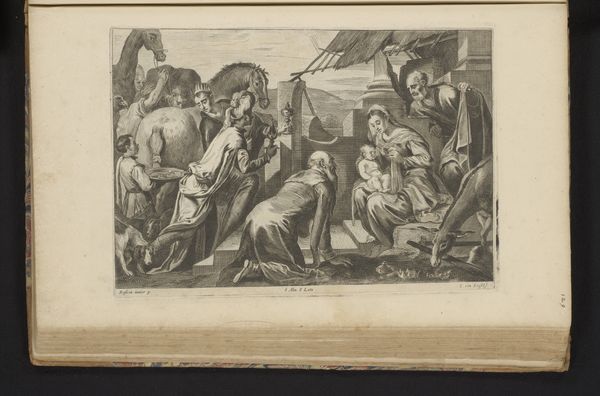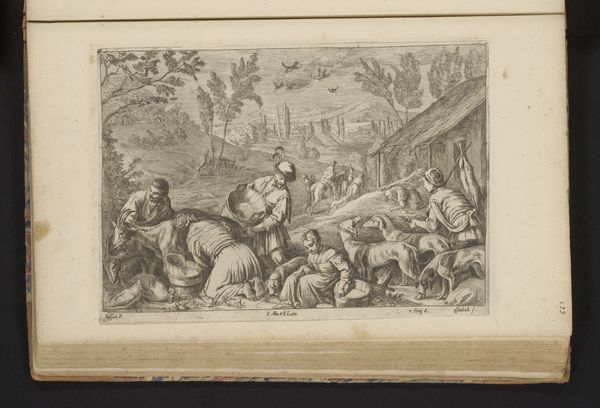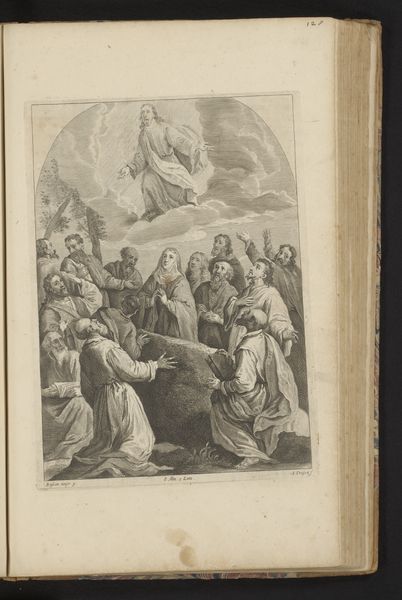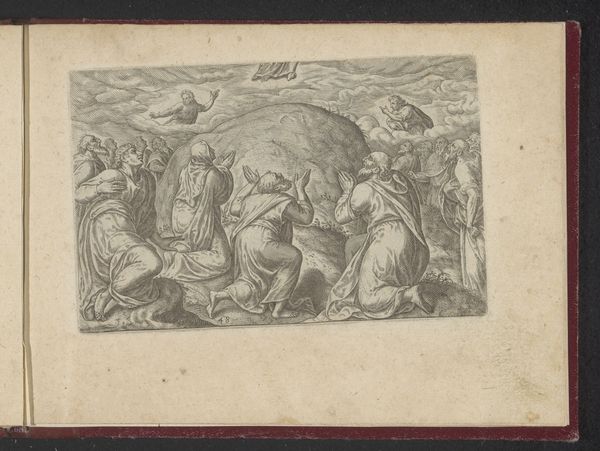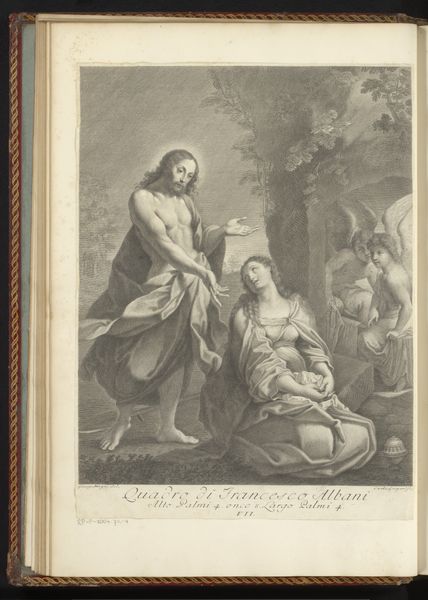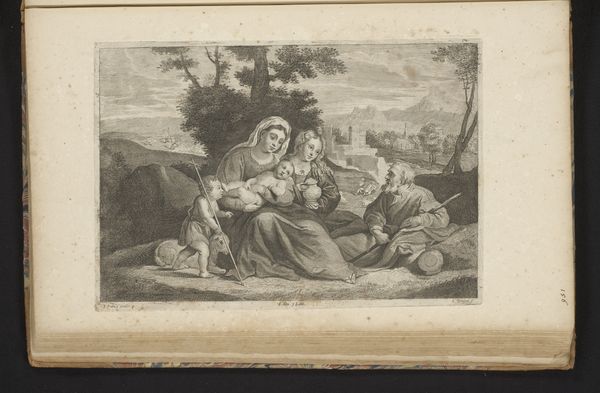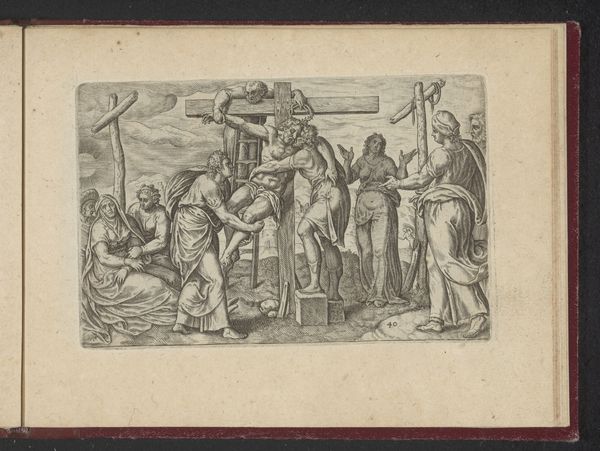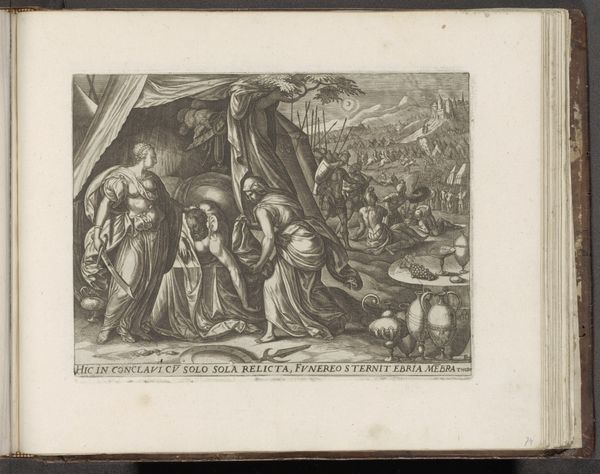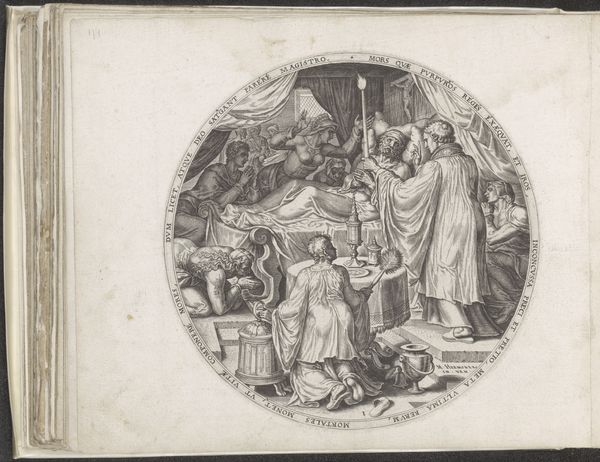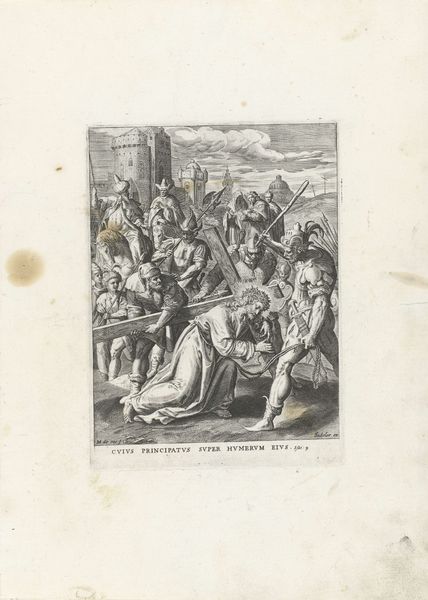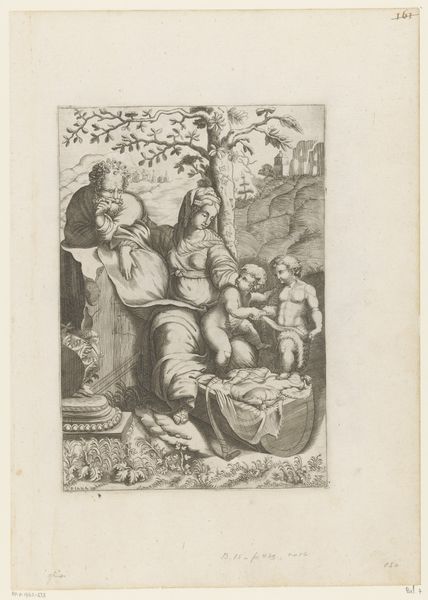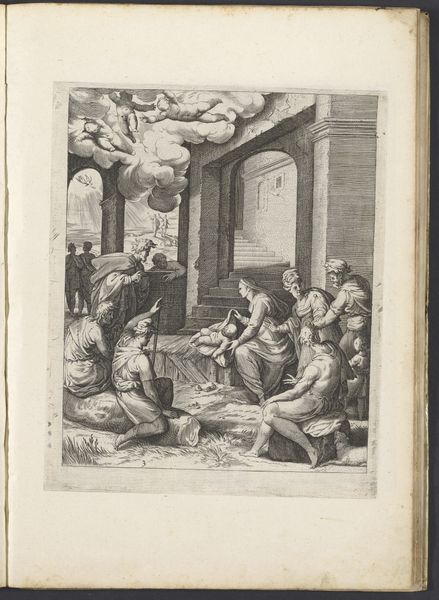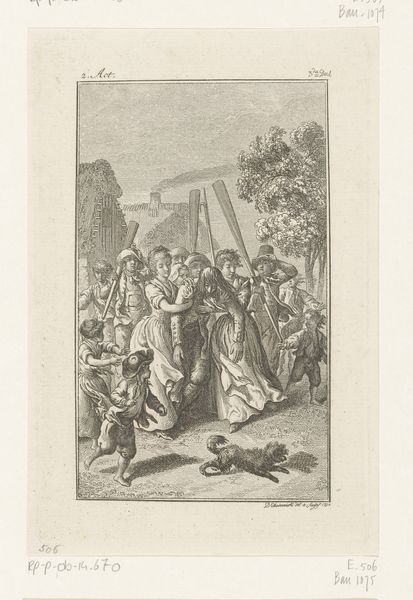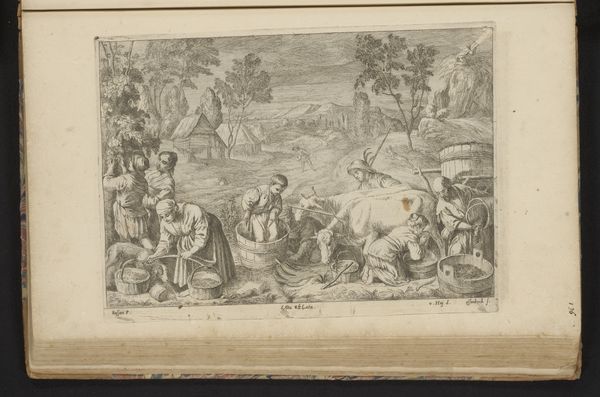
drawing, print, engraving
#
drawing
#
baroque
# print
#
charcoal drawing
#
figuration
#
coloured pencil
#
watercolour illustration
#
history-painting
#
engraving
Dimensions: height 306 mm, width 211 mm
Copyright: Rijks Museum: Open Domain
This engraving, "Bewening van Christus", was made by Jan van Troyen in the 17th century using a technique that was both labor-intensive and highly skilled. Engraving, unlike drawing, is a subtractive process. The artist carves lines directly into a metal plate, typically copper, using a tool called a burin. The depth and thickness of these lines determine how much ink they will hold, and thus the darkness of the printed line. The act of engraving is slow and deliberate, requiring immense precision. The engraver must possess not only artistic skill, but also a deep understanding of materials. The resulting print, born from the collision of metal, muscle, and ink, offers us a glimpse into the world of artistic production in the 17th century, reminding us that even the most ethereal of images has a material basis. It challenges the idea that art exists solely in the realm of the imagination, separate from the realities of labor and process.
Comments
No comments
Be the first to comment and join the conversation on the ultimate creative platform.
